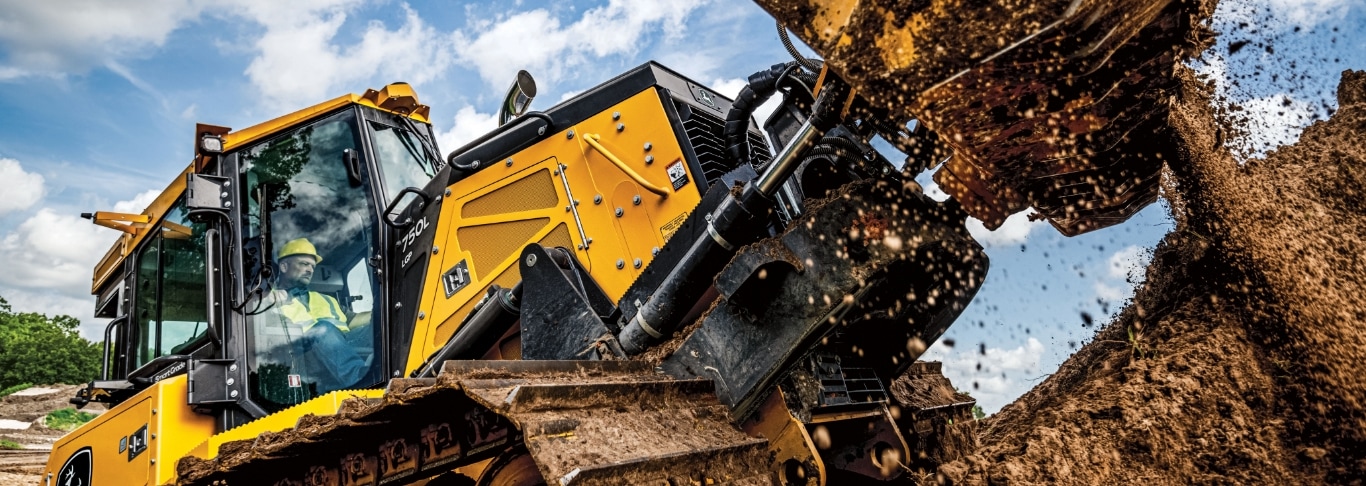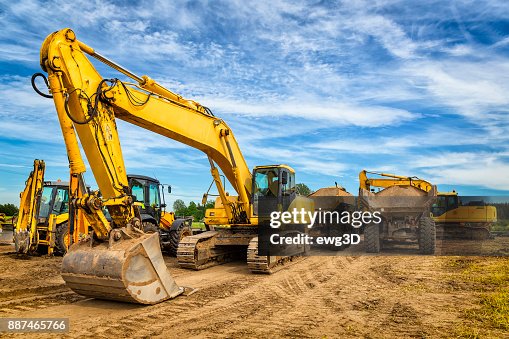Discovering the Financial Conveniences of Leasing Building Equipment Compared to Having It Long-Term
The decision in between leasing and possessing construction tools is essential for economic monitoring in the market. Renting out offers immediate expense savings and functional flexibility, permitting companies to allocate resources a lot more effectively. Comprehending these nuances is important, particularly when thinking about just how they straighten with particular task needs and monetary methods.

Expense Contrast: Leasing Vs. Having
When evaluating the monetary implications of renting out versus having building tools, a thorough expense contrast is vital for making notified decisions. The selection between owning and leasing can dramatically impact a company's profits, and comprehending the linked expenses is important.
Renting building and construction equipment usually entails reduced in advance prices, permitting companies to assign funding to other functional demands. Rental arrangements commonly consist of flexible terms, allowing companies to gain access to progressed equipment without lasting commitments. This flexibility can be particularly useful for temporary tasks or fluctuating workloads. Nevertheless, rental expenses can build up in time, possibly surpassing the expenditure of ownership if devices is required for an extensive duration.
On the other hand, having construction tools calls for a significant preliminary financial investment, along with continuous costs such as insurance coverage, devaluation, and financing. While ownership can result in long-term cost savings, it additionally locks up resources and may not supply the same degree of versatility as leasing. Additionally, owning tools demands a commitment to its usage, which might not always align with job demands.
Inevitably, the choice to own or rent needs to be based on an extensive evaluation of certain task needs, monetary capacity, and long-term tactical objectives.

Upkeep Costs and Duties
The selection between having and leasing construction tools not only entails financial factors to consider but likewise incorporates recurring maintenance expenses and responsibilities. Possessing devices needs a considerable dedication to its upkeep, that includes regular examinations, fixings, and prospective upgrades. These responsibilities can quickly accumulate, bring about unexpected expenses that can strain a budget plan.
In comparison, when leasing equipment, upkeep is typically the responsibility of the rental firm. This arrangement enables professionals to avoid the monetary problem connected with deterioration, as well as the logistical difficulties of scheduling repair services. Rental contracts frequently include stipulations for upkeep, meaning that professionals can focus on finishing tasks instead of bothering with equipment condition.
In addition, the diverse series of tools readily available for lease makes it possible for companies to pick the most up to date designs with advanced modern technology, which can boost efficiency and efficiency - scissor lift rental in Tuscaloosa Al. By going with services, businesses can stay clear of the long-lasting liability of devices devaluation and the associated upkeep migraines. Inevitably, reviewing maintenance expenses and obligations is critical for making an informed choice about whether to rent or have building equipment, considerably impacting general task prices and functional effectiveness

Devaluation Influence on Ownership

A significant aspect to consider in the choice to own building and construction equipment is the impact of depreciation on general read here ownership costs. Depreciation represents the decrease in value of the equipment over time, affected by aspects such as usage, wear and tear, and improvements in technology. As equipment ages, its market price lessens, which can dramatically influence the owner's economic placement when it comes time to trade the equipment or offer.
For building and construction firms, this devaluation can equate to considerable losses if the equipment is not made use of to its fullest capacity or if it comes to be out-of-date. Owners must make up devaluation in their financial estimates, which can lead to higher general costs contrasted to renting. Additionally, the tax implications of depreciation can be complicated; while it may provide some tax advantages, these more information are typically offset by the fact of decreased resale worth.
Ultimately, the problem of devaluation emphasizes the importance of understanding the long-term monetary dedication entailed in possessing building and construction equipment. Companies should thoroughly assess just how usually they will utilize the devices and the possible economic influence of depreciation to make an educated choice concerning ownership versus renting.
Economic Flexibility of Renting
Renting building and construction equipment provides significant financial adaptability, permitting companies to assign resources extra effectively. This adaptability is particularly critical in a sector defined by fluctuating job demands and varying workloads. By opting to rent out, companies can avoid the considerable resources investment required for acquiring devices, maintaining capital for other functional needs.
In addition, renting tools enables business to customize their devices choices to certain task demands without the lasting dedication linked with ownership. This implies that organizations can conveniently scale their equipment inventory up or down based upon awaited and existing task requirements. Consequently, this flexibility reduces the threat of over-investment in machinery that may end up being underutilized or out-of-date gradually.
One more monetary benefit of renting out is the possibility for tax advantages. Rental repayments are often taken into consideration operating budget, enabling prompt tax reductions, unlike depreciation on owned and operated equipment, which is spread out over numerous years. scissor lift rental in Tuscaloosa Al. This instant expense acknowledgment can further enhance a business's money setting
Long-Term Job Factors To Consider
When assessing the long-term demands of a construction business, the decision between having and try this site renting devices comes to be more complicated. Trick elements to consider consist of project period, frequency of use, and the nature of upcoming jobs. For tasks with prolonged timelines, acquiring equipment may seem useful as a result of the capacity for lower overall expenses. Nevertheless, if the tools will not be utilized consistently across jobs, owning might lead to underutilization and unneeded expense on storage space, insurance, and maintenance.
In addition, technological developments posture a considerable factor to consider. The construction market is advancing rapidly, with new devices offering enhanced performance and safety functions. Renting enables companies to access the most recent modern technology without committing to the high upfront expenses related to purchasing. This flexibility is specifically helpful for services that take care of varied tasks requiring various types of tools.
Additionally, monetary stability plays an essential function. Owning devices typically involves considerable resources investment and depreciation problems, while renting allows for even more predictable budgeting and money flow. Eventually, the selection between renting and having needs to be straightened with the critical purposes of the building service, thinking about both anticipated and current task demands.
Conclusion
In final thought, leasing building and construction equipment uses significant monetary benefits over long-lasting possession. Eventually, the choice to rent rather than own aligns with the dynamic nature of building jobs, allowing for versatility and access to the newest equipment without the economic worries associated with possession.
As devices ages, its market value lessens, which can substantially affect the owner's monetary position when it comes time to market or trade the tools.
Renting building and construction equipment supplies substantial economic flexibility, allowing business to allot resources more effectively.Additionally, leasing devices enables business to tailor their devices choices to particular job demands without the long-term commitment linked with ownership.In final thought, renting out building and construction equipment offers substantial monetary advantages over long-lasting ownership. Ultimately, the choice to rent instead than own aligns with the dynamic nature of building and construction projects, allowing for versatility and access to the most current tools without the monetary problems linked with possession.
Comments on “Heavy Equipment Rental in Tuscaloosa AL: Discover the Right Devices for Any Type Of Task”